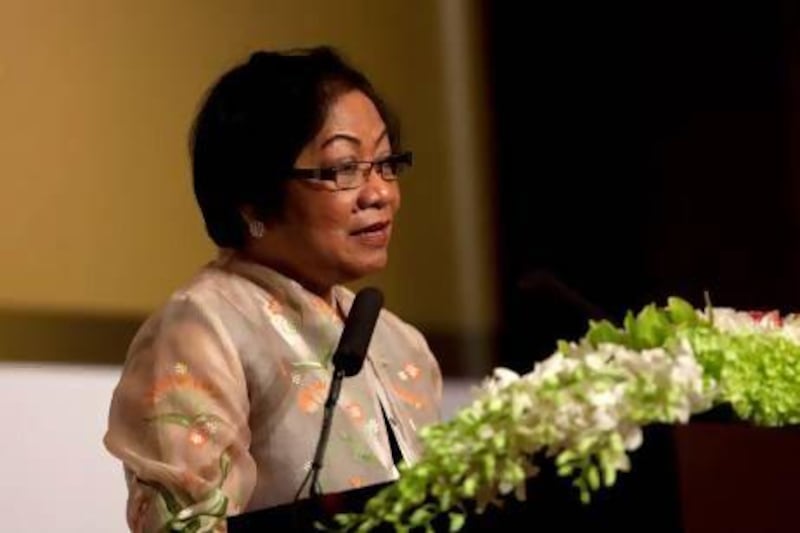ABU DHABI // The Philippines is vetting employers overseas to ensure they have no history of ill treatment of domestic staff.
Authorities in Manila are also clamping down on recruitment agencies that charge placement fees, and revoking their licences.
"Those who have a history of abuse do not deserve to hire our workers," said Rosalinda Baldoz, the Philippine labour secretary.
"But there are good employers who take care of our workers and their families. These workers have been with them for five to 15 years.
"We are now becoming stricter with abusive employers. We are crafting … rules, which are now under review."
The Philippine Overseas Employment Administration has already cancelled the licences of recruitment agencies that continue to charge placement fees, said Hans Cacdac, chief of the organisation.
"We blacklist abusive employers and are very strict when it comes to physical abuse and other forms of maltreatment," Mr Cacdac said.
"Poea is cracking the whip on recruitment agencies. I won't hesitate to cancel their licence even if they charge one peso."
The organisation also wants to reduce the costs of medical checks and improve pre-departure training for domestic workers.
Labour officials will hold talks by the end of the year with their peers in the UAE, Kuwait and Qatar on agreements for the welfare and protection of Filipino household staff.
The Philippines and Saudi Arabia signed an agreement in May to provide more rights and better protect migrant domestic workers.
A US$400 (Dh1,469) minimum monthly salary was set, as were weekly rest days and paid holidays.
In August last year, Mr Cacdac discussed a five-year programme to reduce the number of Filipinos seeking domestic work abroad.
He said later that workers would be banned from working for abusive recruitment agencies and employers, but not in specific countries.
"The general direction we got from the labour secretary in December last year was to focus on labour market diversification," said Delmer Cruz, the labour attache in Dubai.
"We were asked to gradually veer from the vulnerable sectors such as domestic and low-skilled workers, and develop other markets that offer better terms and conditions and higher salaries."
The Philippine overseas labour office in Dubai now focuses on the health and hospitality sectors, Mr Cruz said.
"The Philippines is now moving on to the higher end of the market but I cannot talk of a phase-out in the household service workers' deployment," Ms Baldoz said.
"We reward good employers for their humane treatment by allowing them to hire our workers, but tighten our overseas recruitment policies."






